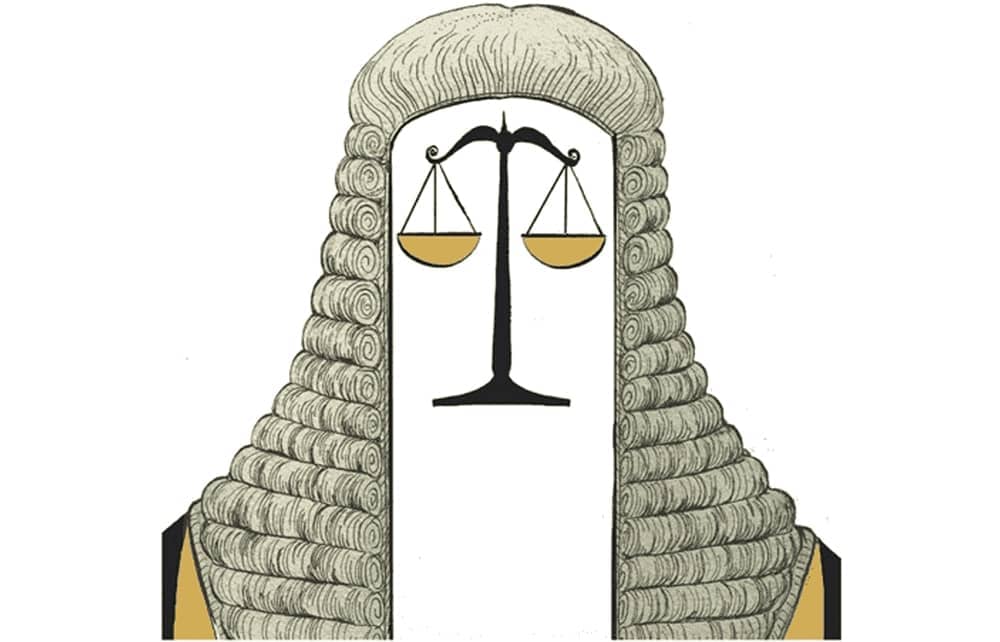The Conservative party fought the 2019 general election with a manifesto commitment to establish a Royal Commission on Criminal Justice. The promise was welcomed by almost everyone involved in criminal justice. But despite repeated attempts over the last four years to hold the government to its word, notably by the former Prisons Inspector Lord Ramsbotham, the promise was simply broken. There has never been any government apology or explanation; just vague mutterings about the pandemic making things rather difficult.
On the bright side, the government did lend parliamentary time to a law that now makes it easier to prosecute, and if necessary imprison, those who feed other people’s cats
Meanwhile the crisis has deepened since 2019. Court waiting lists are longer, prisons are more overcrowded and more degrading than ever. Prison officers have left the prison service in their thousands. Experienced lawyers have stopped practising criminal law. Trust in the police has continued to decline, often for good reason. How many innocent people have been wrongfully convicted – perhaps because of over-stretched police or over-worked lawyers – is unknowable, not least because the of the parlous state of the Criminal Cases Review Commission, which is responsible for investigating miscarriages of justice. Its dismal performance has been exposed by the Post Office scandal and the Andrew Malkinson case. On the bright side, of course, the government did lend parliamentary time to a law that now makes it easier to prosecute, and if necessary imprison, those who feed other people’s cats.
The 2024 Conservative party manifesto seems unlikely to repeat the promise of a Royal Commission (and they could hardly expect anyone to believe them if they did). The party has made no suggestion so far of any serious plans to deal with any of the critical criminal justice issues. Instead the two measures so far announced are for tinkering with homicide law.
The proposals are to reclassify manslaughter by diminished responsibility as ‘second degree murder’, and to ensure that killers who murder ‘in the home’ will face a minimum custodial term of 25 years before being considered for release on licence.
The proposal to reclassify one type of manslaughter appears to be a reaction to the indefinite hospital order imposed on Valdo Calocane. The Prime Minister is said to have ‘struggled to understand how the punishment was fair given the nature and circumstances of the crime.’ Relabelling manslaughter as ‘second degree murder’ seems fairly inconsequential, but if Sunak actually struggles to understand why it is a bad idea to incarcerate exceptionally dangerous and floridly psychotic individuals like Calocane in ordinary prisons rather than in high security psychiatric hospitals he is far more stupid than anyone imagined. The more likely explanation is that he is not particularly stupid but is trying to make political capital from a horrific case.
The second idea, that killers who ‘murder in the home’ should face longer minimum terms, does not appear to have been prompted by any particular case. Nor does it appear to have been given much thought. If a murderer has a history of domestic abuse that is rightly treated as something that aggravates the offence. But the rationale for treating him more leniently if he is considerate enough to drive his wife to an isolated woodland before strangling her has yet to be explained. Nor is it clear why a victim of abuse who kills her abuser, or a loving carer who smothers a terminally ill relative in a perceived act of mercy, should be treated with particular severity simply because the killings takes place ‘in the home.’
Given the likely outcome of the election the Prime Minister’s plans for criminal justice are almost certainly irrelevant. What matters is what a Labour government with a huge majority will do, and Labour’s strategy of saying even less about the crisis than the Conservatives means we still have little idea. Perhaps they don’t either. There are very few grounds for optimism. The last time Labour were in power they devised the egregiously unjust sentence of ‘Imprisonment for Public Protection,’ under which thousands of prisoners were given what were in all but name life sentences, often for relatively trivial offences. Even the minister responsible for its introduction now regards the policy as a disaster.







Comments